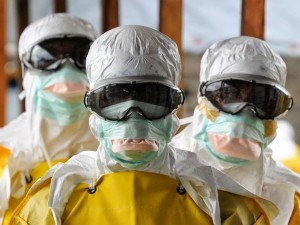Saying that the cross-border movement of the human remained of deceased suspect, the Committee urged that probable or confirmed EVD cases should be prohibited unless specifically authorized on a case-by-case basis by relevant national authorities of both the exporting and receiving country. Warning that there should be no general ban on international travel or trade, the Committee maintained that there should be no restrictions on the travel of EVD survivors. It added that only those restrictions outlined in these recommendations regarding the travel of EVD cases and contacts should be implemented.
Given the continued progress made in interrupting the original chain of transmission, and lack of justification for excessive or inappropriate additional measures, the Committee said States should terminate any travel and transport measures that go beyond these Temporary Recommendations by end-December 2015. It also urged States to provide travellers to areas of active Ebola transmission with relevant information on risks, measures to minimize those risks, and advice for managing a potential exposure.
“States should be prepared to detect, investigate, and manage Ebola cases; this should include assured access to a qualified diagnostic laboratory for EVD and, where appropriate, the capacity to manage travellers originating from areas of active Ebola transmission who arrive at international airports or major land crossing points with unexplained febrile illness. “If active Ebola transmission is confirmed to be occurring in the State, the full recommendations for States with Ebola transmission should be implemented, on either a national or sub-national level, depending on the epidemiologic and risk context” the statement reads in parts.
Source: Leadership Online

 To avoid a fresh outbreak of the Ebola Virus Disease, the World Health Organisation (WHO) has urged States to continue their conduct of exit screening of all persons at international airports, seaports and major land crossings, for unexplained febrile illness consistent with potential Ebola infection. This appeal was made in a statement obtained by our correspondent at the weekend shortly after a meeting of the Emergency Committee convened by the WHO Director-General under the International Health Regulations (2005) (IHR) regarding the Ebola Virus Disease (EVD) outbreak in West Africa
To avoid a fresh outbreak of the Ebola Virus Disease, the World Health Organisation (WHO) has urged States to continue their conduct of exit screening of all persons at international airports, seaports and major land crossings, for unexplained febrile illness consistent with potential Ebola infection. This appeal was made in a statement obtained by our correspondent at the weekend shortly after a meeting of the Emergency Committee convened by the WHO Director-General under the International Health Regulations (2005) (IHR) regarding the Ebola Virus Disease (EVD) outbreak in West Africa




